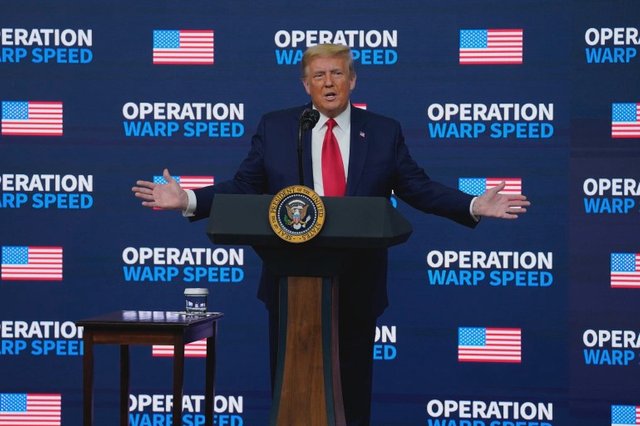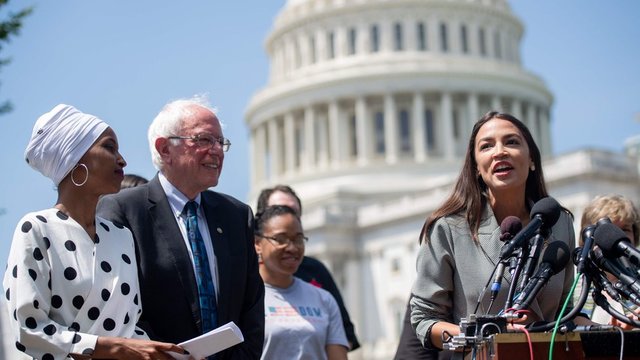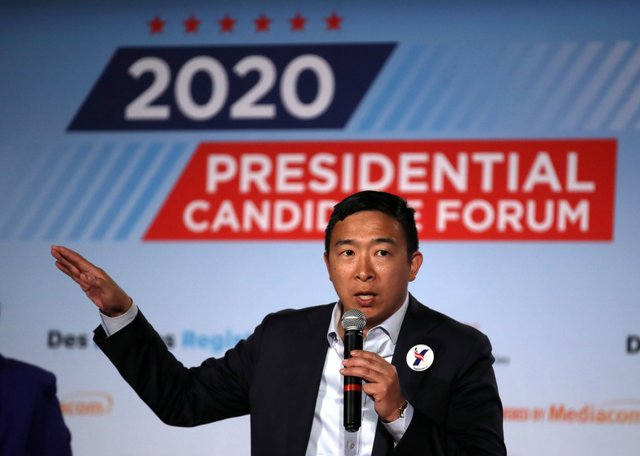The Case for New American Parties
Political parties in America change often, sometimes rapidly. How comparable is the 2020 Republican Party to its 2010 version? Or the Democratic Party?
The trends that led to today’s political climate had been in full swing 10 years ago, but we had yet to imagine the impact they could have. The parties today are angry, mistrustful and both feel they have been wronged and cheated by the other side. In all the debate surrounding how to bridge America’s political divide, we have yet to consider another alternative, potentially because it would be a resoundingly anti-establishment, populist move.
In the span of 4 years, President Donald Trump has fundamentally altered and warped the Republican Party. The voter sentiment that led to Trump’s 2016 election — mistrust of the Washington establishment, resentment towards a less and less functional system, rapid growth of wealth inequality — had been developing for years, manifesting itself through figures like Governor Sarah Palin, the Tea Party movement, and polarization. Trump did not start the movement, though he effectively seized and turbo-charged it.
In the Democratic Party, things have been shifting at a rapid pace as well. The good-natured, slow burn of progress during President Barack Obama’s tenure led to frustration among many on the left who recognized a need for dramatic reform. Less dramatically changed than the Republican Party, President-elect Joe Biden seeks to act as a bridge between the establishment-friendly, neoliberal politics of former Presidents Bill Clinton and Obama and the growing populism manifesting itself through Senator Bernie Sanders’ and Representative Alexandria-Ocasio Cortez calls for change.
One of the most important questions to ask as we enter the 2020s is whether the Republican or Democratic Party is capable of delivering the change that is needed. Deep resentment and polarization dominate the discussion. Americans are inclined to mistrust or even hate politicians because of their party registration. The parties and leadership that bred the dysfunctionality plaguing the nation may just be too out of touch to deliver the change that the people need at this time.
Another, less organized movement has sprung up in recent years. Led by figures like Representatives Ron Paul, Justin Amash, Tulsi Gabbard and entrepreneur Andrew Yang is the true and honest populism that bucks precedent and party leadership because it has failed to adequately adapt and no longer serves the people.
Paul’s grassroots campaigns for president in 2008 and 2012 focused heavily on the military-industrial complex that has firmly gripped American politics since President George Bush launched the War on Terror. He argued that our invasion in the Middle East has led to countless casualties, further destabilized the region and that American taxpayers are footing the bill for meaningless chest-beating based on scant evidence. He argued that the Republican Party was straying further and further from its core values of individual liberty and small government.
His campaign was widely ignored and sidelined by the media and the establishment. Having received a fraction of the attention and consideration given to establishment-friendly candidates, his campaign gained little traction and he lost the primary.
A similar story can be told for Amash, Gabbard and Yang. Believing that the modern Republican Party has lost touch with its values, Amash left the party in July 2019 and joined the Libertarian Party in April 2020. Gabbard centered her 2020 campaign around a belief that the establishment lacked the motivation or ability to address massive and pressing issues like the military-industrial complex and nuclear threats. Yang campaigned in 2020 on a Universal Basic Income of $1,000 a month for every American citizen, arguing that the most effective way to encourage prosperity and individual liberty is to put economic power directly into peoples’ hands.
Gabbard and Yang were ignored and sidelined by the media and establishment. Their campaigns never received treatment that could be considered fair or impartial and they lost in the primary.
In 2020, there is an opportunity for the political landscape to change dramatically before even 2024. America has grown polarized and dysfunctional largely as a result of animosity between two parties that dominate the scene.
Proven through the success of Obama’s, Trump’s and Sanders’ campaigns, Americans recognize a need for change, but cannot agree on what that change should be. What if it didn’t have to Democrat or Republican? What if some of the honest people who want to better the country formed new liberal and conservative parties that bucked establishment politics which only serve to deepen our problems and divide?
Even if new parties were unsuccessful initially in campaigns, they would serve to colorize the discussion and expand our perspectives. Animosity towards Republican conservatives likely wouldn’t apply the same to people like Paul and Amash, just as animosity towards Democratic liberals likely wouldn’t apply the same to people like Gabbard and Yang.
These people specifically have argued that our current system at best inhibits progress and at worst actively discourages it. America should call on them to realize the vision they have for the country and stand for it. I think there is a strong appetite to support honest populism and shake things up.


